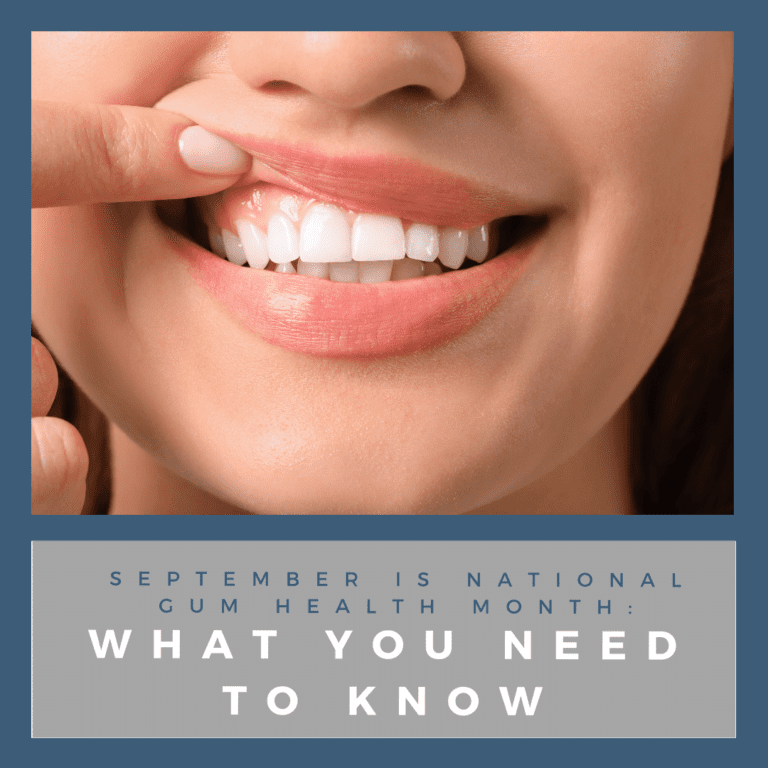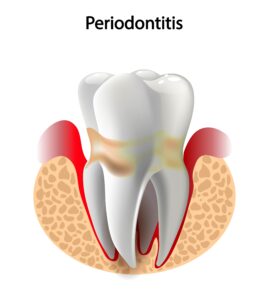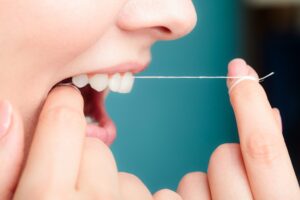September is National Gum Health Month: What You Need to Know

Did you know that September is National Gum Health Month? This makes the month of September the perfect opportunity to learn more about gum disease- what it is, how to prevent it, and its symptoms. Here are some important things that you should know about gum disease:
What Is Gum Disease?

Gum disease (also known as periodontal or gingival infection) is caused by plaque buildup. Dental plaque is made up of food particles, as well as oral bacteria. The bacteria in plaque can attack teeth, causing inflammation and infection. When the gums become infected, this is known as gum disease. Gum disease can cause your teeth to become loose and/or fall out, and the bacteria from gum disease can also enter your bloodstream through tiny openings in the gums, eventually leading to other infections throughout your body.
There are two forms of gum disease known as gingivitis and periodontitis. Gingivitis is the less serious form of gum disease, but it can lead to periodontitis if left untreated. Gingivitis primarily affects the gum tissue, while periodontitis affects other tissues such as the cementum, periodontal ligaments, and the underlying jaw bone. Although gingivitis can be reversed with treatment, periodontitis cannot.
What Are The Symptoms Of Gum Disease?
Since gingivitis can be reversed with treatment, it is important to know the symptoms of gum disease so that you can seek treatment as soon as possible. The symptoms of gingivitis and/or periodontal infection include:
- teeth that are sensitive or aching
- bleeding while brushing or flossing your teeth
- swollen, red, or tender gums
- gum recession (your teeth may look larger or longer than usual)
- bad breath
- tooth pain while biting or chewing food
It is also important to note that some cases of gum disease may not produce noticeable symptoms. Gingivitis, in particular, tends to go unnoticed by most people and is generally diagnosed during a regular dental checkup. This is why it is important to visit your dentist for a teeth cleaning and oral exam at least twice per year.
How Can I Prevent Gum Disease?

The best way to prevent gum disease in the first place, of course, is by brushing and flossing teeth regularly. The American Dental Association recommends brushing twice a day for two minutes with a fluoridated toothpaste and flossing daily. Practicing good oral hygiene habits like brushing and flossing helps to remove excess plaque and bacteria from the surface of your teeth and along the gum line, which reduce the risk of developing gum disease.
When it comes to preventing gum disease, it is also important to determine if you are at an increased risk for developing this common oral health problem. Certain medical conditions can increase the risk of gum disease, such as diabetes, HIV/AIDS, and cancer. Gum disease is also more common among individuals that have a history of smoking or chewing tobacco products, or those who have a family history of gum disease. If you are at risk for developing gum disease due to genetics or other factors, make sure to talk with your dentist about teeth cleaning treatments that may help prevent the bacteria in plaque from causing damage to teeth and gums.






Recent Comments